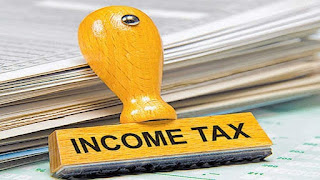Depreciation on goodwill – caution!
Business restructuring is an integral part of the journey for a business enterprise, often triggered by the change in economic, regulatory or business dynamics. In the past, multiple measures were taken by the government to support reorganization and restructuring of businesses to align with their new economic needs. The stated policy intent behind these measures was to enable restructuring of the production system, utilize resources better, and help the Indian industry to rearrange itself to become globally competitive.
India’s Union Budget 2021 made changes in the provisions relating to depreciation on goodwill, which is an important factor for stakeholders undertaking such activities. This, in turn, triggered a lot of debate in the tax and business fraternity. Let us examine the underlying issues.
The Income Tax Act, 1961 contains provisions relating to depreciation on tangible as well as intangible assets. Rate of depreciation for different categories of assets, called the ‘block of assets’, are also prescribed. These rates are applied on the written down value (WDV) of the block of assets.
As far as the intangible assets are concerned, the Act lists down the type of intangible assets on which depreciation can be claimed. These are know-how, patents, copyrights, trademarks, licences, franchises or “any other business or commercial rights of similar nature". It is evident that ‘goodwill’ is not specifically covered in this list.
In the past, taxpayers have argued that goodwill is part of ‘any other business or commercial rights of similar nature’ i.e. the residual category of intangibles. Hence, depreciation should be available on goodwill. The revenue, on the other hand, supported the view, that it is not covered in the list of intangibles eligible for depreciation
This issue came up before the apex court (Supreme Court of India) in the case of Smifs Securities Ltd in 2012. The court held that goodwill arising on account of excess consideration paid over value of assets acquired on amalgamation is an intangible asset. It would fall in the category of ‘any other business or commercial rights of similar nature’. Thus, the court held that goodwill is a depreciable asset.
Subsequent to the decision of Smifs Securities, there have been a plethora of judgments that have relied on the apex court ruling and allowed depreciation on goodwill both in case of tax-neutral restructuring e.g. amalgamations/ mergers and those acquisition transactions which are not tax-neutral, e.g. slump sale.
The Finance Act, 2021 has made a series of amendments to clarify that no depreciation on goodwill shall be allowable from 1 April 2020 (i.e. financial year 2020-21).
These include specific amendments to lay down that goodwill cannot be part of the block of assets, specifically exclude it from list of intangible assets, adjustment in block of asset to offset the impact of depreciation claimed in the past, prescribing how cost of goodwill will be worked out in different scenarios.
The rationale behind the same has been provided in the Memorandum to Finance Bill, 2021, which states that goodwill, in general, is not a depreciable asset and it depends on how the business runs. Goodwill may see an appreciation or no change in its value. Hence, the argument of claiming depreciation on goodwill is not justified.
These amendments do not differentiate between goodwill recognized during tax-neutral transactions (such as amalgamation, demerger) and non-tax neutral transactions (such as slump sale).
It is important to note that in case of slump sale, the seller is required to pay tax on the capital gains made on sale of the business undertaking. Goodwill is part of this business. Capital gains in this case is computed as the excess of sales consideration over the net worth of the business undertaking. In the past, buyers used to claim deprecation on this excess amount. Post these changes, while the seller will continue to be liable to pay capital gains tax, the buyer will not be eligible to claim depreciation.
Further, these amendments also do not differentiate between related party and unrelated party transactions. There is no distinction between self- generated and acquired goodwill. In nutshell, depreciation on goodwill will not be available in future.
Also, these amendments take effect from Financial Year 2020-21. This would impact the acquisitions that have taken place during the aforesaid financial year where the stakeholders would have factored in depreciation on goodwill while working out the commercials.
Even for transactions that have taken place in the past, where the taxpayers were claiming depreciation, going forward, no depreciation would be available. So, to that extent, there is no grandfathering even for the past transactions.
In the past, in many cases, taxpayers used to bundle together other intangibles such as dealer network, marketing rights, business information etc. and depreciation was claimed on the entire amount as goodwill. Considering this amendment, the taxpayers may now need to undertake a detailed exercise of segregating and assigning values individually to other intangibles as well, where depreciation may still be available. This aspect has to be carefully evaluated, as dispute with the tax authorities is not ruled out, especially in case of those items that are not specially mentioned in the list of intangibles.
While the stakeholders have been requesting for a relook at these amendments and seeking some relief, at least in cases which are not tax-neutral or for making these provisions applicable only for future transactions. At present, the stakeholders would need to factor in these changes while formalizing any mergers and acquisition transactions or structuring their deals.
Source:https://www.livemint.com/money/personal-finance/depreciation-on-goodwill-caution-11620938044589.html
Download our App to get knowledge updates: https://play.google.com/store/apps/details?id=com.app.gstmitraa
Join Our Telegram Channel for more updates: https://t.me/praveengst




Comments
Post a Comment